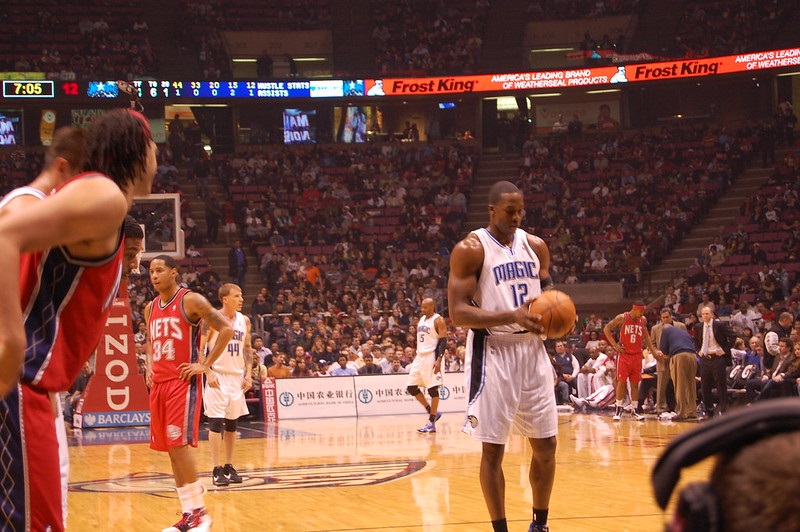
Image Credit: Bari D (CC BY-ND 2.0)
Yes, the phrase "ticket broker" can sometimes be a fancy way of saying "ticket scalper". But if you think about it, they operate no differently than a car dealership or a businessman that buys, improves and flips houses. Once you purchase something, you own it and can do whatever you want with the product afterward, especially if there is a market for it.
So how do ticket brokers get their hands on such prized seats for sporting events? First, know that almost all of a ticket broker's inventory is sold on the internet now compared to 20 years ago. (I do know of a few ticket brokerages that actually have offices where you can purchase tickets in person off the street.) Many ticket brokers are season ticket holders and their inventory was bought outright from a team. (Many unlicensed scalpers on the street are season ticket holders too). Season ticket holders in general are able to purchase tickets for less than what you and I would pay face value at the team's box office.
Ticket brokers also form partnerships with other season ticket holders at which the broker will pay a percentage above face value for rights to the tickets. This is often the case when a long time season ticket holder has seats that a broker wants but doesn't own the personal seat license (PSL). PSL's are often sold and transferred for and by NFL fans.
Another way ticket brokers get their hands on great seats is that they purchase tickets on consignment from a season ticket holder. All consignment means is that the season ticket holder and broker will split all profits if and when their tickets are purchased by a fan on the secondary market. It might be also important to know the difference between the primary ticket market and the secondary ticket market. The secondary ticket market includes websites such as Stubhub, Ticket Monster and RazorGator where tickets are being re-sold and is based on supply and demand. Primary ticket market websites like Ticketmaster and Live Nation are the first to issue tickets to fans for concerts or sporting events so they determine the price of tickets. That's it.
Many sports franchises are perfectly aware that their tickets are being purchased and re-sold on the secondary ticket market. (The Winnipeg Jets do not appreciate the reselling of their tickets.
So why do so many of these franchises turn their head? Simply because ticket scalpers often buy tickets in bulk and their money is green just like everyone else's. Most sports franchises could care less about what is done with their tickets after they are sold. This is also the reason a sellout is announced at a game even though the stadium is no where near full - the tickets are gone but a lot of the inventory went unsold on the secondary market.
Ticket Buying Software
Many fans are unaware that ticket buying software really does exist. It was kept hush hush by brokers for quiet a while. The software is referred to as "Point of Sale" and many well known companies like Ticket Network, Ticket Evolution, Ticket Utils and Ticket Technology offer their version. Point of sale allows brokers to manage their inventory and sales, store and sell e-tickets, manage relationships with customers, collect payments from customers and create shipping labels for FEDEX and UPS. Ever notice how a number of websites will have the exact same seats listed for sale? Point of sale software allows them to do this.
Fighting Ticket Brokers
Ticket brokers are opposed by many entities. You probably already know that the re-selling of tickets within a certain radius of a stadium or arena is prohibited. There are constantly state laws and regulations proposed or passed to regulate the ticket re-selling industry. Some are successful, some are not. Another concept many sports teams are adopting is paperless ticketing. Paperless ticketing is where fans purchase tickets from the ball club on their credit card. Afterward, the credit card is required to enter the stadium, no tickets are ever issued. This keeps tickets from exchanging hands on the secondary market. Major League Baseball calls it the 'FanPass'. Paperless ticketing has it's pros and cons but nevertheless, it isn't going anywhere anytime soon.
Related Articles
- Is Purchasing Tickets from Craigslist Safe and Reliable?
- When is the Best Time to Buy My Tickets?
- StubHub for Dummies
- Buying Tickets from Scalpers Post Start Time. Risk or Reward?
- How are Super Bowl Tickets Distributed?
- What to do When You've Purchased the Wrong Tickets or Chosen Bad Seats

